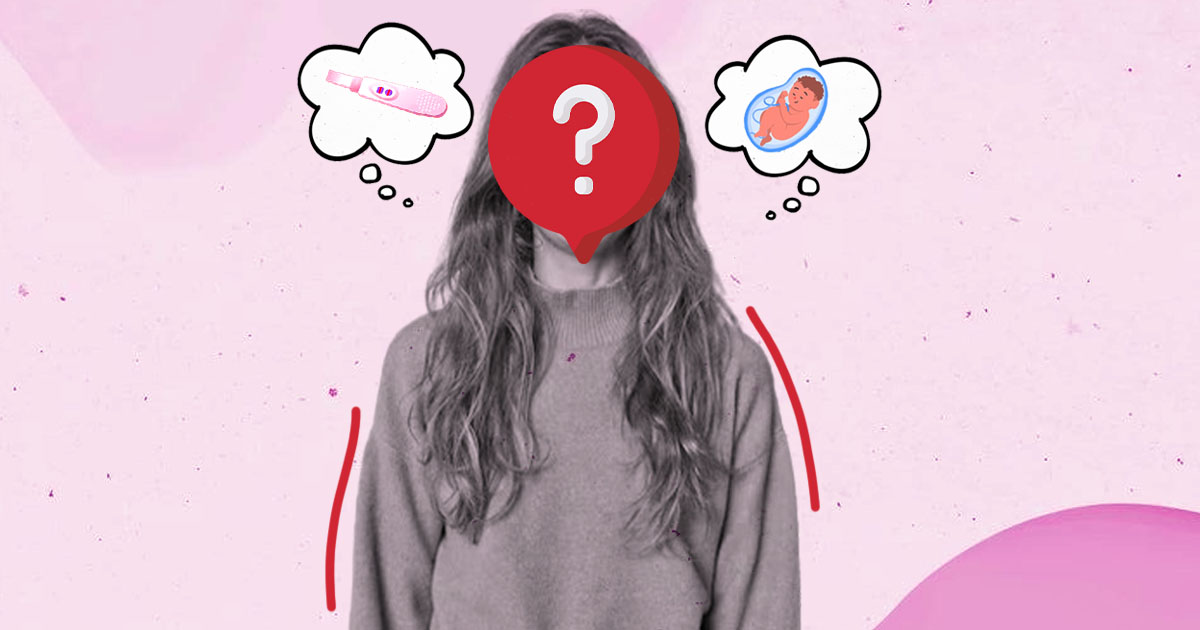Starting a family is an amazing experience and also quite daunting. While contemplating about pregnancy, being aware of factors like age and fertility is paramount.
A woman’s fertility isn’t constant with time. How old your ovaries and eggs are is crucial when it comes to the probability of becoming pregnant.
However, it depends on personal circumstances as this could vary from expert opinion that usually holds that late twenties to early thirties is the best period for childbearing. Picking the right age requires looking at a number of elements.
If you are curious about what is the best age to get pregnant or want to know what happens if you delay having kids, this article was written for you. This article will offer you everything regarding the best age possible for having kids. Ultimately, we want you to be armed with information that will enable you plan better for your pregnancy journey.
Understanding the Biological Rhythms
The biological clock is a good place to start this discussion, as it is the term often used when talking about fertility. For those with ovaries, the peak time is usually in their early and mid-thirties.
During this time, women are at their most fertile and least likely to experience any fertility related challenges.
However, life doesn’t always go according to biological clocks. The journey is different for everyone. If you’re wondering when should I get pregnant?, don’t ask!
Although the biological clock may become more apparent, science has developed new reproductive technologies. These developments give hope and options for those who are not on the conventional timeline.
Natural conception has higher chances in your early 20s. Many people associate this time with personal growth, career development or dating which make pregnancy too early by that age.
Read More: What Are Hormones? Types, Functions & Disorders – Mind Help
Best Age To Get Pregnant With PCOS
As you approach your mid-30s, fertility begins to decline more noticeably. The quantity and quality of eggs diminish, and the chances of encountering challenges increase. However, this doesn’t mean that starting a family is off the table.
Assisted reproductive technologies, such as in vitro fertilization (IVF) and egg freezing, can offer alternatives for those navigating the question of best age to get pregnant with pcos.
Read More: How to Become Pregnant with PCOS: 7 Proven Strategies
The Emotional Rollercoaster
Parenthood is not just a biological journey; it’s a rollercoaster of emotions. Are you ready for the late-night lullabies, the tiny clothes, and the heart-melting first smiles? Or do you feel a pull toward ticking off a few more items on your personal bucket list before asking what is the best age to get pregnant?
These are real questions, and your answers will shape your unique journey.
1. Career and Education
The pursuit of career goals and educational achievements often takes center stage in our 20s and early 30s. Many individuals prioritize establishing a solid professional foundation before embracing parenthood.
The early years of a career can be demanding, and the desire to climb the career ladder may influence the timing of starting a family.
Read More: Tips For Working Parents To Balance Career And Home
2. Financial Stability
The financial aspect of parenthood is a significant consideration. Couples may choose to delay having children until they feel financially secure, capable of providing a stable environment for their family. However, it’s essential to strike a balance between financial stability and the biological clock, considering the best age to get pregnant with pcos.
Read More: Money And Mental Health: 7 Tips To Reduce Financial Stress
3. Relationship Readiness
The stability and readiness of a romantic relationship play a pivotal role in the decision of what is the best age to get pregnant. Some couples feel the pull toward parenthood when their relationship is in full bloom, while others may need more time to solidify their connection before taking on the responsibilities of raising a child.
Read More: How To Put Yourself First In A Relationship: 20 Tips
4. Personal Development
The 20s and early 30s are often a time of self-discovery, personal growth, and exploration.
Individuals may prioritize personal development, travel, and unique experiences before committing to parenthood. The desire to fulfill individual aspirations before embracing the responsibilities of parenting is a valid consideration.
Read More: Self-Actualization: 8 Powerful Ways To Achieve It
Challenges And Hurdles Of Late Pregnancy
While the decision to delay parenthood is often driven by valid reasons, it comes with its set of challenges and considerations.
1. Decreased Fertility
As fertility declines with age, especially for women, delayed parenthood can reduce the chances of conceiving naturally. Couples may find themselves facing challenges in fertility, leading them to explore assisted reproductive technologies such as IVF, ICSI, and egg freezing.
2. Increased Risk of Complications
Advanced maternal age, typically defined as 35 and older, is associated with an increased risk of complications during pregnancy and childbirth.
These may include gestational diabetes, preeclampsia, and an increased likelihood of requiring a cesarean section. Regular check-ins with healthcare providers become crucial to monitor and manage these potential risks.
3. Economic Considerations
The economic implications of delayed parenthood extend beyond career considerations. Assisted reproductive technologies and fertility treatments can be expensive, adding a financial burden to couples seeking to conceive later in life. Understanding the costs involved and exploring financial planning options become integral parts of the journey.
4. Emotional Strain
The emotional toll of infertility and the challenges of assisted reproductive treatments can be significant. Couples may face stress, anxiety, and disappointment as they navigate the complexities of trying to conceive later in life. Emotional support, both from partners and external sources, plays a crucial role in maintaining mental well-being.
Read More: Enhancing Fertility Through Yoga: World Yoga Day 2023
Assisted Reproductive Technologies
As advancements in medical science continue, assisted reproductive technologies have become valuable tools for individuals and couples facing fertility challenges.
1. In Vitro Fertilization (IVF)
IVF involves the fertilization of an egg by sperm outside the body, with the resulting embryo implanted into the uterus. IVF can be a successful option for couples facing infertility due to various reasons, including advanced maternal age, male factor infertility, or unexplained infertility.
2. Egg Freezing
Egg freezing, or oocyte cryopreservation, allows women to preserve their eggs for future use. This can be particularly beneficial for those who wish to delay childbearing but want to increase their chances of conceiving with their own eggs later in life.
3. Intracytoplasmic Sperm Injection (ICSI)
ICSI is a form of IVF where a single sperm is directly injected into an egg. It is often used in cases of male factor infertility or when previous IVF attempts have been unsuccessful. ICSI can provide a solution for couples facing challenges related to sperm quality and quantity.
Read More: What Causes Infertility in Women? 5 Devastating Reasons!
So What Is Best Age To Get Pregnant
Parenthood is a journey, and each individual or couple’s path to what is the best age to get pregnant is uniquely their own.
There is no one-size-fits-all answer to the best age to get pregnant, and embracing the adventure at any age comes with its own set of joys and challenges.
1. Early Parenthood
Starting a family in your early 20s or 30s comes with the advantage of youthful energy. Many individuals find that they have the stamina to keep up with the demands of parenting, and there is often a closer age gap between siblings. However, early parenthood may also coincide with the challenges of career building and financial stability.
2. Delayed Parenthood
When considering what is the best age to get pregnant? An option for late pregnancy is available for you!
Couples who choose to delay parenthood often bring a wealth of life experience to their role as parents. They may have established careers, achieved financial stability, and laid a strong foundation for their family. However, the potential challenges of fertility and increased health risks during pregnancy should be carefully considered when deciding ideal age for getting pregnant.
A Word From Mind Family
As you stand at the threshold of this grand adventure called parenthood, remember that your journey is unique. Whether you’re aiming for the early 20s sweet spot, contemplating the mid-30s magic, or considering parenthood beyond 40 understanding what is the best age to get pregnant is completely your choice!
Parenthood is not just about biology; it’s about love, resilience, and the incredible human capacity to adapt and thrive. The ideal age for getting pregnant is not a fixed point on the calendar; it’s the age that aligns with your dreams, your heart, and your readiness.
So here’s to you, to love, to family, and to the beautiful, messy, extraordinary adventure that lies ahead. Cheers to the journey!
Frequently Asked Questions (FAQs)
1. What is the best age to get pregnant?
The best age to get pregnant varies, but the early 20s to early 30s is biologically optimal. However, personal factors like career, relationships, and health play crucial roles. Modern science offers hope for those considering parenthood in their mid-30s or beyond.
2. What is the ideal age for getting pregnant?
The ideal age for pregnancy depends on personal goals. Biologically, the early 20s to early 30s is optimal, but many delay for career or personal growth. Advancements in assisted reproductive technologies provide options for those considering pregnancy later.
3. What is the best age to get pregnant with pcos?
For PCOS, managing fertility is crucial. While there’s no specific best age, proactive management through medications, lifestyle changes, and assisted reproductive technologies can enhance the chances of conception. Consulting with a healthcare provider is essential.












Leave a Reply